Copyright Registration
Copyright Registration
- Advice on the process of obtaining a Copyright Registration in India
- Assistance in the filing of an Application for Registration
- Preparation of the necessary Documents
- Filing of Documents with the Authorities
- Guidance on Post-registration Compliance
- Advice on the process of obtaining a Copyright Registration in India
- Assistance in the filing of an Application for Registration
- Preparation of the necessary Documents
- Filing of Documents with the Authorities
- Guidance on Post-registration Compliance
Copyright Registration - An Overview
The term “Copyright” denotes as one of the pillars of IPR (Intellectual Property Rights), just like Patents and Trademark. It is governed by the provisions of the Copyright Act 1957.
The aim behind the process of copyright registration is to provide an “Exclusive Right” to the owner regarding his/her work. The term “Work” includes Books, Music, Paintings, Website, etc. Also, the term “Exclusive Right” denotes the authority to safeguard the work from duplication.
It shall be relevant to state that no one has the right to use a work without obtaining permission from the respective creator or author. Also, an author or a creator has the right to charge fees from others for using his/ her work. A registered copyright remains valid for a period of 60 years.
Documents Required
The documents required for the Copyright Registration for Artistic Work are as follows:
- 2 Copies of Work.
- Demand Draft of Rs (as applicable) per work.
- NOC (No Objection Certificate) from the author, if in case the applicant is different from the actual author.
- NOC (No Objection Certificate) from the publisher, if work published and publisher is different from Applicant.
- Search Certificate from the Trade Mark Office, if in case the work is being used on goods or is capable of being used on the goods.
- NOC from the person whose photograph appears on the work.
- If in case the application for registration is being filed by a copyright expert, then there is a need for a specific Power of Attorney that will be signed by the applicant and accepted by the attorney.
The documents required for the Copyright Registration for Cinematograph Film are as follows:
- 2 Copies of Work.
- Demand Draft of Rs (as applicable) per work.
- A copy of the Deed of Assignment or NOC from various copyright holders.
- NOC (No Objection Certificate) from the publisher, if work published and publisher is different from Applicant.
- If in case the application for registration is being filed by a copyright expert, then there is a need for a specific Power of Attorney that will be signed by the applicant and accepted by the attorney.
The documents required for the Copyright Registration for Music are as follows:
- 2 Copies of Work.
- Demand Draft of Rs (as applicable) per work.
- NOC (No Objection Certificate) from the publisher, if work published and publisher is different from Applicant.
- If in case the application for registration is being filed by a copyright expert, then there is a need for a specific Power of Attorney that will be signed by the applicant and accepted by the attorney.
- NOC (No Objection Certificate) from the author, if in case the applicant is different from the actual author.
The documents required for the Copyright Registration for Literary and Dramatic Work are as follows:
- 2 Copies of Work.
- Demand Draft of Rs (as applicable) per work.
- If in case the application for registration is being filed by a copyright expert, then there is a need for a specific Power of Attorney that will be signed by the applicant and accepted by the attorney.
- NOC (No Objection Certificate) from the author, if in case the applicant is different from the actual author.
The documents required for the Copyright Registration for Sound Recording Work are as follows:
- 2 Copies of Work.
- Demand Draft of Rs (as applicable) per work.
- A copy of the Deed of Assignment or NOC from various copyright holders.
- If in case the application for registration is being filed by a copyright expert, then there is a need for a specific Power of Attorney that will be signed by the applicant and accepted by the attorney.
- NOC (No Objection Certificate) from the author, if in case the applicant is different from the actual author.
PROCESS
- User Registration
- Filing of Application for Copyright Registration
- Submission of Application
- Issue of Certificate of Copyright Registration
Benefits of Copyright Registration

The process of Copyright Registration assists in creating a Public Record. The term “Public Record” denotes that the owner’s work is duly protected and no one can use it without obtaining prior approval or license from the actual owner.
A registered copyright acts as legal evidence for the author or creator. It prevents the work from duplication and can be used as a proof of ownership in front of the court.
A duly registered copyright enables the owner to file a suit for infringement and take legal action against the infringer.
For example: A person is selling copies of a work without the prior permission of the owner.
In India, a registered copyright offers certain economic benefits to the owner regarding the use of the work, such as Public Performance, Broadcasting of Work, Making Copies, etc. Further, the term “Economic Benefits” denotes the availment of the appropriate fee or reward for the use of work.
After obtaining Copyright Registration, only the author or creator has the right to change the form of work. For example: a registered copyright enables the owner to revise, update, or make a sequel of the work.
A duly registered copyright enables the owner to sell/ pass/ or transfer the right of his/ her work to another person.
Why BizOkay India?


Frequently Asked Questions
The term “Copyright” denotes the “right” given by law to the creators. The term “right” includes the right of reproduction, communication to public, adaption, and translation of work.
The Copyright Act, 1957, is the governing law for Copyright Registration in India.
One needs to mention the following, letter “c” in circle ©, or the abbreviation “Copr.”, or word “Copyright”; the name of the owner; and year of the first publication.
A Copyright remains valid for the lifetime of creator plus 60 years from his/her death.
No, copyright does not normally apply to the Title and Name.
The term “Copyright Society” denotes a collective administration of societies formed under section 33 of the Copyright Act, 1957.
The term “Copyright Protection” denotes protection to Musical, Dramatic, Literary, and Artistic works from unauthorized use. However, it does not protect Ideas.
No, Mathematical Concepts are not covered under the Copyright Act 1957.
Yes, anyone can submit the application of copyright registration on his/her own.
No, an applicant cannot apply for copyright as a whole; he/she needs to file a separate application for each component.
For Copyright Registration in India, one can choose Swarit Advisors in order to file a proper and correct application for copyright registration. We have a team of IPR experts who will assist in getting registration in a smooth manner.
One can search for copyrights by visiting the official website or copyright office.
One can check by conducting an online search.
One can search by visiting the official website or copyright office.
No, any work without creativity, originality, and uniqueness is not eligible for copyright registration.
Copyright remains valid for the life of the author or creator plus 60 years after the death of the author.
Anything that is in an intangible form, such as ideas, slogans, names, titles, phrases, etc. are not eligible to obtain copyright registration.
The main difference between the two is that copyright gives protection to unique content, whereas, trademark gives protection to the logo, slogan, brand name, colour combination, etc.
No, it is mandatory for the creator to obtain copyright registration, if he/she wants to protect the content from imitation.
Yes, one can use a copyright symbol without obtaining registration, and the symbol has nothing to do with registration.
Usually, a period of 2 to 3 months is needed to obtain Copyright Registration in India.
The symbol of copyright is denoted by the symbol “©”, or by the word “Copyright”.
Initially, a copyright society is granted registration for a period of 5 years.
The term “Work” denotes a wide range of intellectual conceptions from computer applications, novels, to architecture.
No, there is no international registry of copyrighted works.
The term “neighboring” or “related” rights denote a set of copyright type reasons given to the person assisting in making a work available to the public. These mainly include Producers of Phonograms, Performers, and Broadcasting organization.
Yes, any individual who is an original author, rights owner, legal heir, and assignee is eligible to file an application for copyright Registration of work in India.
Yes, a Computer Software or Computer Programme is eligible to be registered as “Literary Work” under the Copyright Act.
The registration fee for Copyright Registration of Literary, Musical, Artistic, and Dramatic work is Rs 500. In contrast, the registration fee for Cinematograph Film and Sound Recording is Rs 5000/- and Rs 2000/- respectively.
All types of Dramatic, Literary, Musical, and Artistic Work, such as Movies, Poetry, Novels, Songs, Computer Software, and Architecture, are eligible for Copyright Registration in India.
